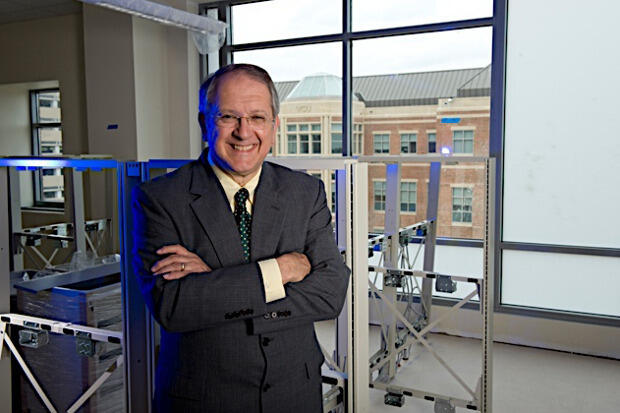
Nov. 23, 2015
Macrina named a fellow of the American Association for the Advancement of Science
Share this story
Francis L. Macrina, Ph.D., vice president for research and innovation at Virginia Commonwealth University, has been named a fellow of the American Association for the Advancement of Science. Election as an AAAS fellow is an honor bestowed upon AAAS members by their peers.
This year 347 members have been awarded this honor by AAAS because of their scientifically or socially distinguished efforts to advance science or its applications. New fellows will be presented with an official certificate and a gold and blue (representing science and engineering, respectively) rosette pin on Feb. 13 from 8 a.m. to 10 a.m.at the AAAS Fellows Forum during the 2016 AAAS Annual Meeting in Washington, D.C.
This year’s AAAS fellows will be formally announced in the AAAS News & Notes section of the journal Science on Nov. 27.
Macrina was elected as an AAAS fellow for distinguished contributions to molecular biology and dental health science, particularly on virulence factors of streptococci, and for outstanding leadership in promoting responsible conduct of research.
The tradition of AAAS fellows began in 1874. Currently, members can be considered for the rank of fellow if nominated by the steering groups of the association’s 24 sections, or by any three fellows who are current AAAS members (so long as two of the three sponsors are not affiliated with the nominee’s institution), or by the AAAS chief executive officer. Fellows must have been continuous members of AAAS for four years by the end of the calendar year in which they are elected.
Each steering group reviews the nominations of individuals within its respective section and a final list is forwarded to the AAAS Council, which votes on the aggregate list.
The council is the policymaking body of the association, chaired by the AAAS president, and consisting of the members of the board of directors, the retiring section chairs, delegates from each electorate and each regional division and two delegates from the National Association of Academies of Science.
Subscribe to VCU News
Subscribe to VCU News at newsletter.vcu.edu and receive a selection of stories, videos, photos, news clips and event listings in your inbox.








